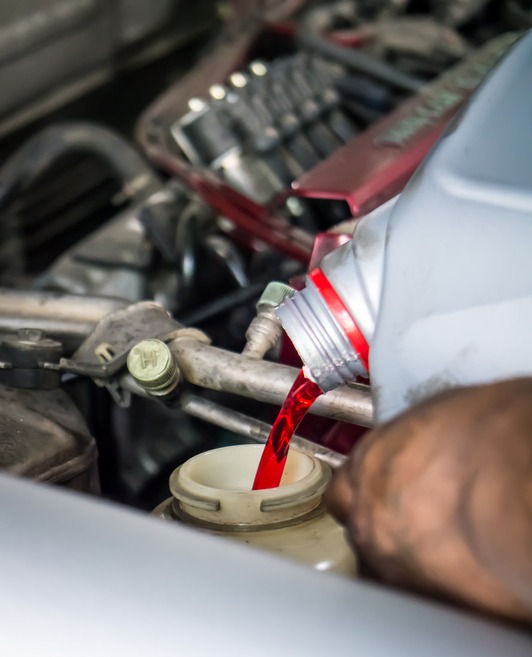There are a lot of car parts that people don’t know about. Most car owners only think about one car component when they need to fill it up is transmission fluid. Transmission fluid is also called automatic transmission fluid, ATF, or gear oil. Transmission fluid serves many purposes in the car’s transmission system and engine; here are some of them:
- Provides lubrication for all moving parts (gears) inside the transmission
- Cools down the gears
- It keeps dirt and water from entering into places where they can cause damage
Understanding the various usage of transmission fluid is essential to broaden your knowledge of maintaining your car. If you want to learn more about transmission fluid, continue reading. In this article, we’ll dig deeper and look into its purpose, how it works, and other information about a car’s transmission fluid.
What is a Transmission Fluid?
A car’s transmission fluid is responsible for ensuring that car parts of the transmission system operate smoothly. The fluid keeps these car components cool and lubricated, especially during frequent acceleration (when your car’s RPMs need to change quickly).
The purpose of a car transmission fluid is to provide cooling by acting as a heat transfer medium; it also suspends the gear oil particles and helps prevent wear on car parts. Gear oil is thicker than transmission fluid, so it can provide more protection against wear and tear on car components.
How Transmission Fluid Works
When you step on the gas pedal, your car’s RPMs go up quickly – this causes gears inside the transmission to rotate faster. If the car transmission fluid wasn’t around, the car’s gears would heat up from friction, and car parts would wear out quickly.
Car transmission fluids cool down these rotating car components by acting as a medium for transferring heat away from them – this way, they’ll stay lubricated even when your car is going at high speeds. Transmission oil also helps to prevent dirt and water from entering the car’s transmission system.
How Often do I Need to Change my Transmission Fluid?
The frequency at which you need to change your car’s transmission fluid depends on a lot of different factors, such as the make and model of your car, driving habits, etc. However, most car manufacturers recommend car owners change car transmission fluid every 30,000 miles.
There are many car shops that offer car transmission flushing services – they can inspect your car’s current transmission fluid and if it needs changing or not. To identify when is the best time for servicing/changing car transmission fluid, you should also conduct a search for transmission fluid change near me and consult with the owner’s manual for your vehicle.
Signs that You Should Change Your Transmission Fluid
If you’re unsure of whether you should replace your car’s transmission fluid, you should understand the various symptoms of a faulty transmission. Knowing when your car’s transmission is not functioning correctly would save you time and money going to the auto shop.
Here are various signs that mean you should change your transmission fluid:
- Your car is making unusual noises or feels like there’s something wrong with it. If your car doesn’t shift properly and you notice the RPMs of your car going up, this means that transmission fluid isn’t reaching all car gears – meaning some parts aren’t getting lubricated.
- There are noticeable leaks on your car (watch out for car fluids on the ground!) If you notice car transmission fluid leaking, this means that there are car components that have worn out or broken – which is a sign that your car needs new transmission fluid.
- The car smells odd (burning scent). If you notice an unusual burning smell inside the car when it’s running, this might mean that car transmission fluid isn’t reaching car components, and they aren’t getting enough lubrication. This can cause car parts to wear out quickly – meaning you need a new car transmission fluid as soon as possible!
If you notice any of these symptoms, it’s time to bring your car into the shop for a car transmission fluid flush and inspection!
What Happens if the Transmission Fluid is Left Unchanged?
If you fail to change your car’s transmission fluid when it’s recommended, there are various car components that will suffer.
Here are some car parts that will wear out more quickly if the transmission fluid isn’t changed:
- The car clutch – this is the part of the car that helps to connect and disconnect the engine from the gearbox; if your car transmission fluid isn’t replaced when it’s supposed to be, the car clutch will wear out quickly.
- The car gearbox – this is the part of the car that helps change gears; if your car transmission fluid isn’t replaced when it’s due, the car gearbox will start to grind, and you’ll hear a weird noise when changing gears.
- The car bearings – these are the small metal balls that help reduce friction between car parts; if the car transmission fluid isn’t replaced, the car bearings will start to wear and eventually fail.
If you don’t want to have to pay for expensive car repairs, it’s best to change your car’s transmission fluid when it’s recommended!
Conclusion
Transmission fluid is the lifeblood of your vehicle. It keeps things running smoothly and helps prevent wear on gears, bearings, seals, and valves that can lead to expensive car repairs or even a breakdown at an inopportune time. Be sure you’re keeping up with scheduled transmission fluid changes as outlined by your owner’s manual for your vehicle. It could save you from some major headaches down the road!

